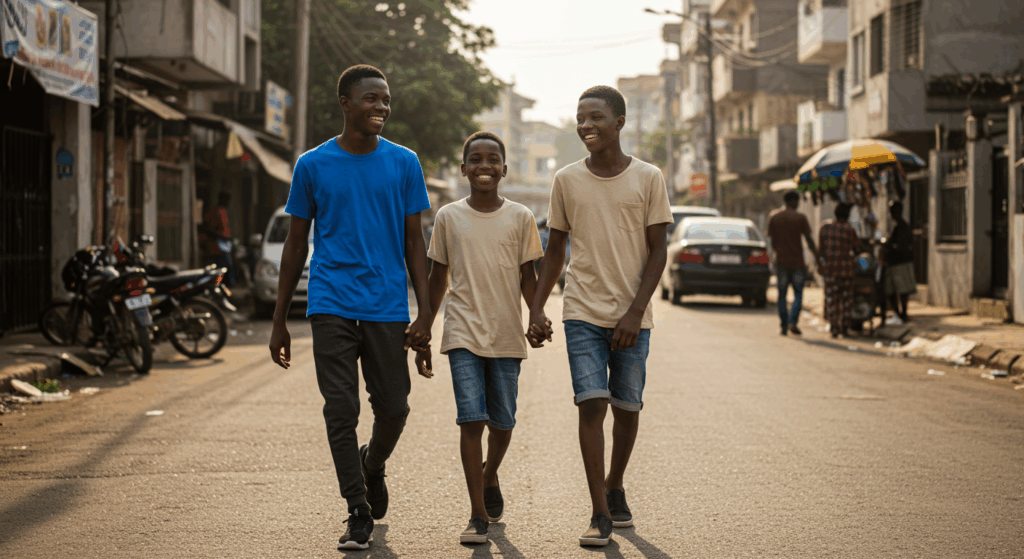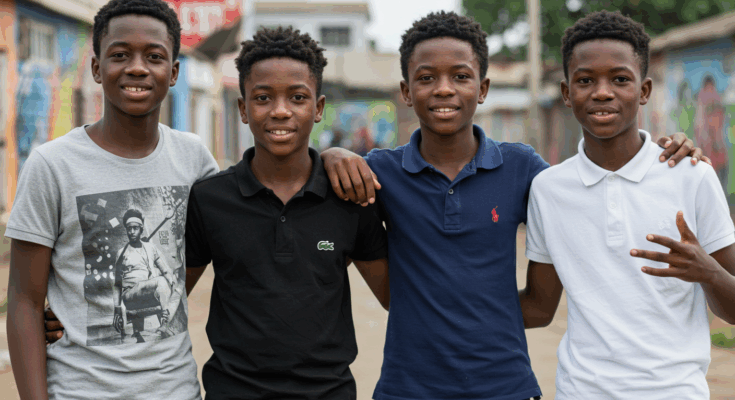By Bababunmi Agbebi
Historically, boys have been regarded as the pillars of society expected to be tough, emotionless, and ever-resilient. From a young age, many are taught to suppress vulnerability and “be strong” at all costs. This cultural mindset has resulted in generations of men who struggle with emotional expression, mental health, and insecurity.
In countries like Nigeria, this issue is even more critical. Boys from underprivileged backgrounds are often forced into adult responsibilities far too early. Many engage in street trading and hawking just to support their families at ages when their peers in more privileged communities are in school, learning and playing.
Child hawking is not just a Nigerian problem; it is a common issue across developing and underdeveloped nations. Unfortunately, the consequences of this practice go beyond the loss of education. It leaves lasting psychological and social effects, feeding cycles of poverty, exploitation, and crime.

“Man Up”: A Harmful Phrase That Needs to Go
Telling boys to “man up” may sound harmless, but its effects are deeply damaging. These two words have been used for generations to silence boys and men, teaching them that expressing pain, fear, or sadness is a sign of weakness. This toxic messaging can lead to:
- Suppressed emotions, which may later manifest as aggression or depression.
- Mental health issues that go unaddressed due to stigma.
- Broken relationships, where emotional communication is stunted.
- Increased risk of suicide, as many men are less likely to seek help.
Emotional suppression doesn’t build strength, it breeds trauma. It’s time to encourage emotional intelligence and compassion in boys, just as we do in girls. Every child, regardless of gender, deserves the freedom to feel, cry, and ask for help.

Steps Toward Real Change
To truly protect and empower the boy child, several strategic interventions must be considered by governments, families, communities, and NGOs:
- Implementation and enforcement of the Child Rights Act – Every child should be protected under law from forced labor, abuse, and neglect.
- Poverty alleviation programs – Supporting poor families can reduce the financial pressure that pushes children into the streets.
- Community outreach and awareness – Educating parents and guardians about child development and the dangers of toxic masculinity is vital.
- Religious and cultural reform – Some outdated practices and beliefs must be examined and amended to prioritize the well-being of children.
Boys Are Children First
If there’s any group in society that should never be neglected, it’s children regardless of gender. Boys are children first, and like all children, they are vulnerable, impressionable, and in need of guidance. It is not enough to simply view them as future providers or protectors. We must also protect them, emotionally and physically, while they are still young.








